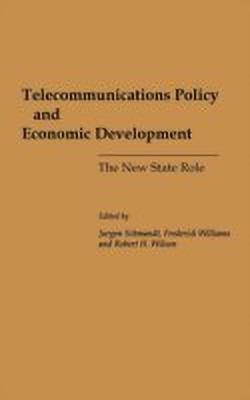Telecommunications Policy and Economic Development(English, Hardcover, unknown)
Quick Overview
Product Price Comparison
Written for communications specialists and policy makers, this book is a penetrating examination into the rapidly changing approach of states to telecommunications regulation and planning since the divestiture of AT&T in January, 1984. The editors place particular emphasis on the conjunction between the increasing state role in developing and implementing telecommunications policy and a new interest in economic development on the part of state governments. Following a discussion of the major issues surrounding telecommunications regulation and an exploration of the links between telecommunications and economic development, the experiences of nine states are considered in separate chapters. The contributors also consider telecommunications applications for improving efficiency in state government. The result is a comprehensive look at existing trends in state telecommunications regulation that will be invaluable not only to officials and legislators, but also to students of communications policy. Each of the nine state chapters includes a profile of the state's social and economic makeup, a description of the policy environment, a statement of regulatory policy, and and analysis of the relationship between telecommunications and economic development in that state. A number of chapters also include detailed case studies--among them a study of New York's Teleport, Nebraska's AGNET, and Washington State's 1985 Regulatory Flexibility Act. Based on their in-depth study of the nine states' experiences, the editors argue that states need to become better informed about the changing telecommunications environment and its potenial for improving efficiency in state government. In addition, both planning and regulation must be more related to economic development plans than they are currently in most states. Finally, the editors conclude that traditional state regulation of telecommunications companies is inadequate for establishing policy in this increasingly complex and important area.


